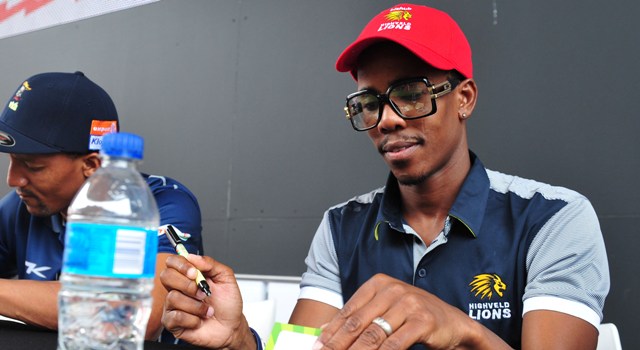A picture of the Match-Fix Four should be pinned up in every cricket change room throughout the land, and in every school pavilion.
Alongside a picture of Hansie Cronje, and Gulam Bodi. Just as a reminder to every cricketer of the outcome of even contemplating fixing a result, or even one play in the game, however insignificant it seems.
The four players banned for conspiring to fix Ram Slam matches have expressed ‘regret‘, and apologised to their families, friends, teammates and to the CSA. They haven’t apologised to South Africa, and they have let their country down.
Nothing in South Africa is simple: it is a complex society battling to overcome a desperate legacy and to right the wrongs of the past. One of the pillars of correction is transformation on the cricket field, and to this end black players are promoted and nurtured.
Some may feel too soon and too fast, but that is another debate.
So it is all the more wrenching when players who stand by right and on merit on the field, are exposed as cheats; their image as role models is smeared with shame, the trust placed in them shattered. These were players who carried the hopes of the team, their fans and ultimately, the country.
It has taken a long time to repair the damage caused by Hansie Cronje back in 2000, to rebuild a team which fought its way to the No 1 ranking in the world. Players such as former England captain Nasser Hussain still talk about the anger and humiliation they felt when the truth was exposed, and South Africa was regarded with suspicion and disdain for years afterwards.
Which is why it is encouraging to see Cricket South Africa taking such a hard line on these players at this level.
It has been just five years since the infamous Pakistan trio of Salman Butt, Mohammad Asif and Mohammad Amir were found guilty of spot fixing. In a full international at Lord’s. They received from the ICC effective bans of just five years (although the wheels of criminal justice were in motion too, and may be in this case).
So for Tsolekile to get 12 years, and the others seven-to-10, sends a powerful message. No longer can players claim ignorance or naivety, for the ICC has raised awareness of match fixing to great heights. They knew what they were doing, and the expressions of contrition, while welcome, are ultimately empty.
The case is both a triumph and a failure: a triumph that CSA are able to detect and act decisively on match fixing and a failure that players of this stature are prepared to let their country down.







